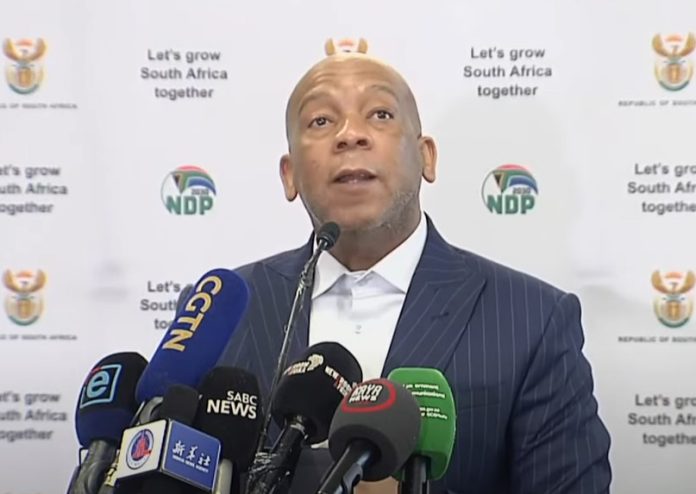South Africa will soon begin the procurement process for some 2 500MW of nuclear energy. Minister in The Presidency responsible for Electricity, Kgosientsho Ramokgopa, announced this during a media briefing on Tuesday.
This after the National Energy Regulator of South Africa gave government the go-ahead to start the procurement process.
Ramakgopa says ending load-shedding and securing future energy security go together, and part of the problem why the country has been challenged by load-shedding, is a lack of appreciation for long-term interventions to secure the country’s energy future.
The Minister explained that the Department of Mineral Resources and Energy (DMRE) had to satisfy a raft of rigorous NERSA conditions, which take into account various factors before the go-ahead could be issued.
During the briefing, the Department of Mineral Resources and Energy said it is looking to release requests for proposals for nuclear by March 2024.
The Minister emphasised that the move is a significant milestone because historically, “the process was mired in controversy”:
“This is profound and what it does is to cement our unassailable position as a country, as a leader on the continent in relation to nuclear generation capacity and also the skills profile that we have.”
Ramokgopa says while government continues to build towards energy security in the future, the immediate challenge of load-shedding is still receiving Eskom’s full attention.
But energy expert Chris Yelland says government should focus more on renewable energy sources, rather than embarking on an expensive new nuclear build project. Yelland says the country needs power now, and this nuclear process will take up to 10 years:
“It will be better to use some of our natural resources, of which we have abundance, and there I’m talking about renewable energy…wind, solar, battery energy storage, pumped water storage and other technologies that can be delivered much more quickly, more reliably and don’t have the problems of high level nuclear waste.”
Professor of Physics at the University of Johannesburg, Hartmut Winkler, says the assertion by government that nuclear is cheaper is simply not true:
“Nuclear is not the cheapest technology by a long shot. It would be, if you are simply running a plant which already exists, but you first of all have to build it…in order to build it to the specifications that they’re talking about, we are talking about R250 billion. That’s not just money that is lying around, Eskom can’t afford this, the government would have to take a loan.”
South Africa’s Koeberg nuclear power station has the capacity to produce 980MW, when both units are running optimally.
Eskom is in the process of extending the life of Koeberg by another 20 years. Unit 1 had been offline to meet the regulatory requirements for purposes of meeting the conditions for extension of life.
After a significant amount of delays of about four months, now Unit 1 is running on full load.
Unit 2 was taken offline this week for purposes of meeting those regulatory requirements and Ramokgopa says they expect that by August of next year, Unit 2 should come back.


